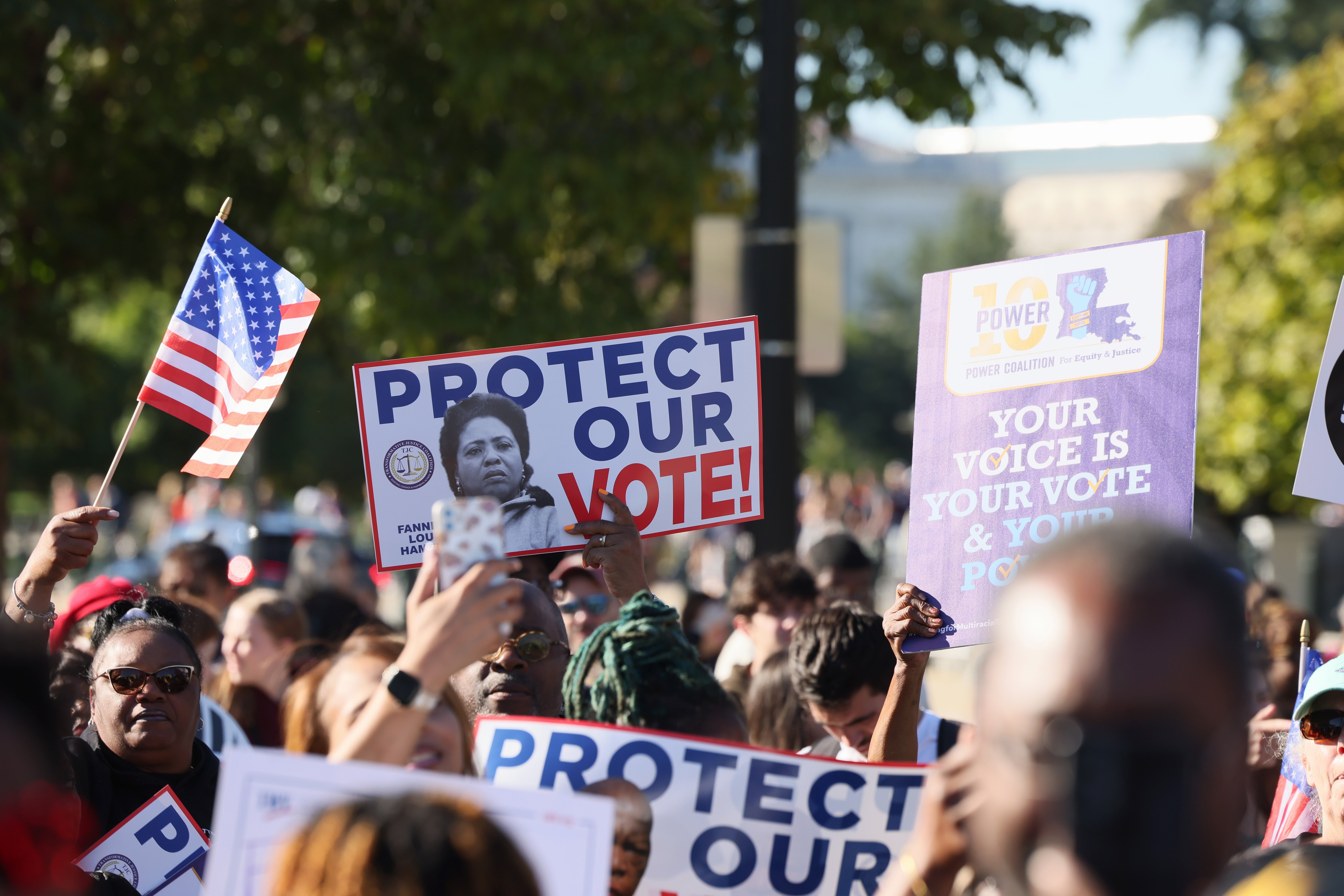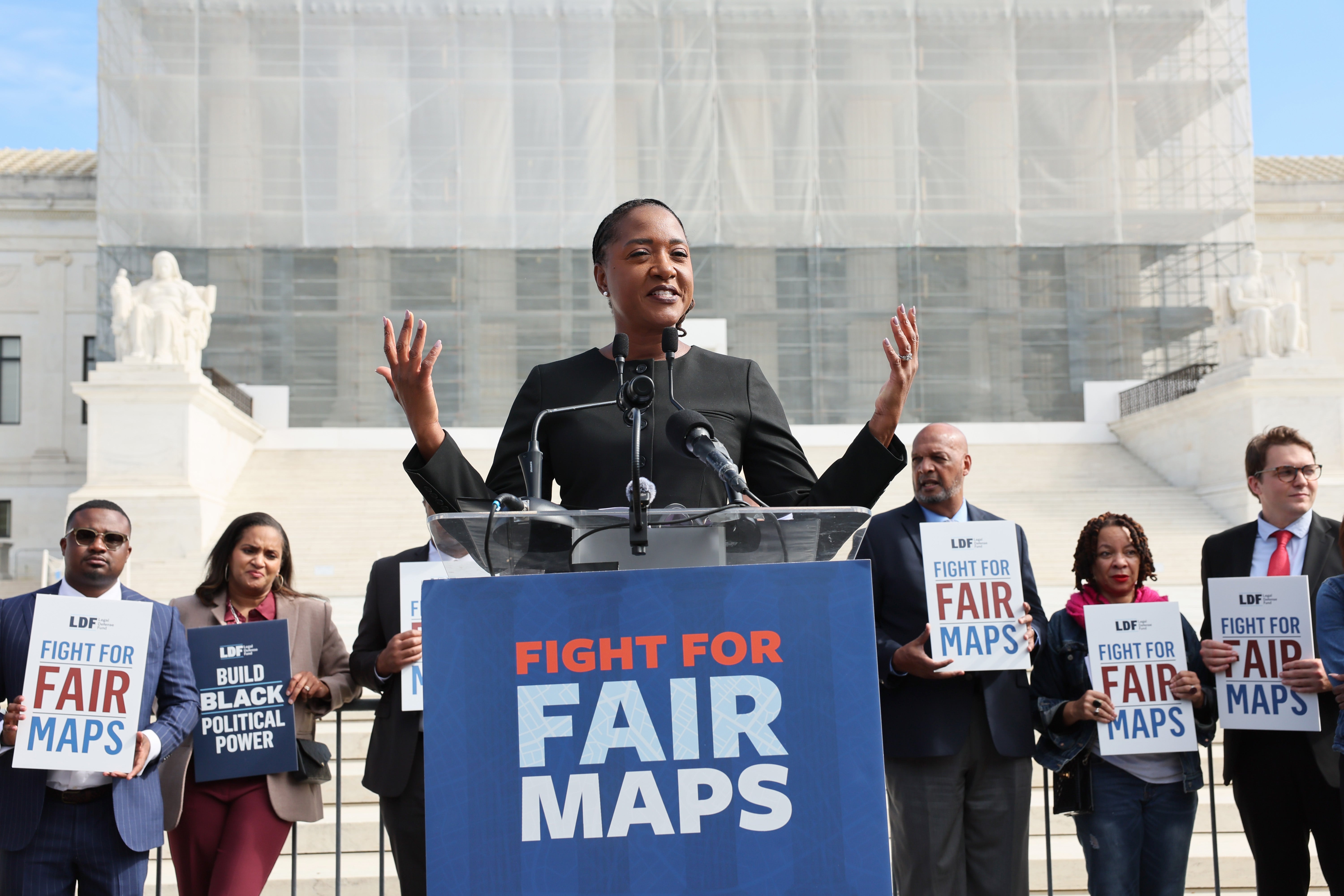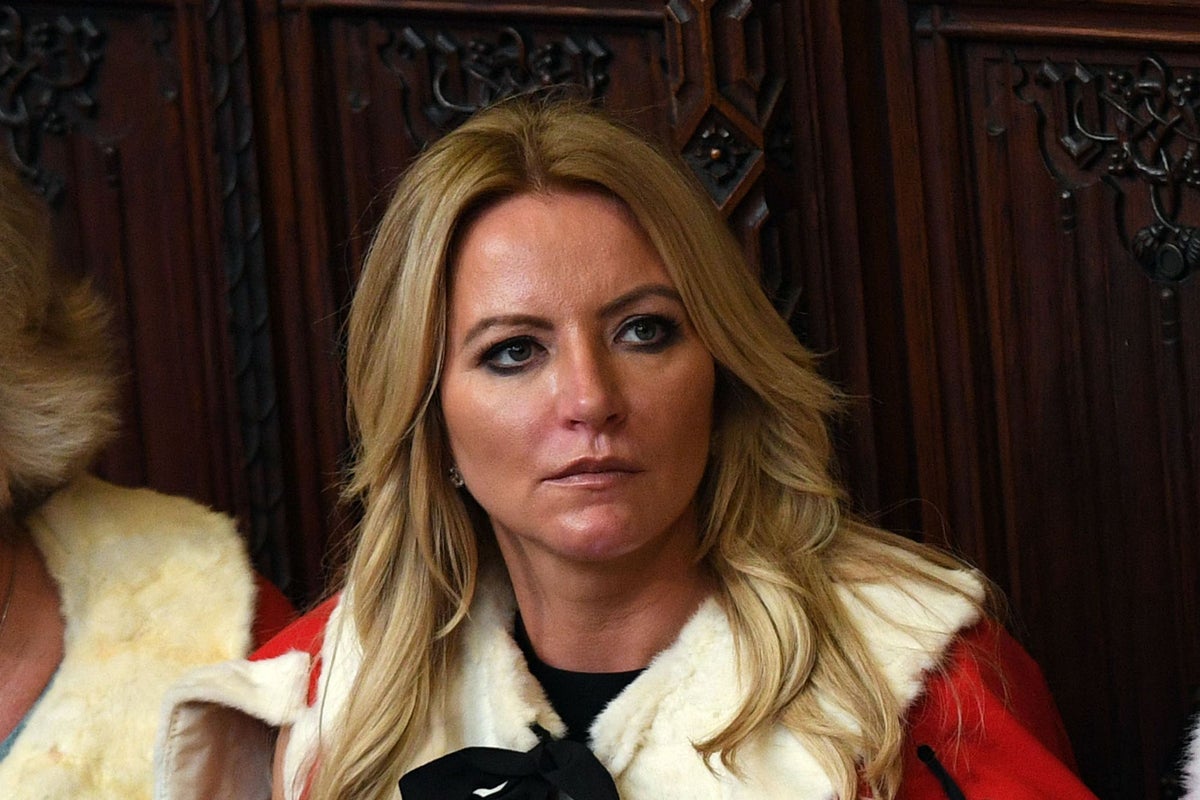The Supreme Court could give Donald Trump and Republican members of Congress a massive shot in the arm for a gerrymandering arms race across the country.
More than a decade after gutting a key component of the Voting Rights Act, the justices are once again being asked to gut what remains of the decades-old civil rights law, which sought to release the grip of Jim Crow-era threats to the right to vote.
But to the Republican officials and Trump administration attorneys making their case to the Supreme Court, racial discrimination that led to the passage of the landmark law in 1965 is a thing of the past.
A new Louisiana congressional map that creates a second majority-Black congressional district violates the same constitutional amendments that were drawn up to protect minority voters in the aftermath of the Civil War, they argue.
At the center of the case before the Supreme Court is the future of Section 2 of the Voting Rights Act, which bans voting rules that discriminate on the basis of race. If justices decide that states don’t need to consider the racial impacts of how congressional districts are drawn, the consequences could be sweeping, opening the door for Republican lawmakers to eliminate Democratic-led districts across the South.

Striking down Section 2 would be “pretty catastrophic,” according to NAACP Legal Defense Fund director Janai Nelson, who is representing Black voters in the case.
If justices side with Louisiana and the Trump administration, it would mark a “staggering reversal of precedent that would throw maps across the country into chaos,” she told justices during Wednesday’s oral arguments.
A decision isn’t expected until 2026, but it could throw into overdrive the aggressive Trump-backed campaign to redraw congressional districts ahead of midterm elections that could determine the balance of power in the House for decades.
The developing war over congressional maps follows a series of Supreme Court decisions that have gradually chipped away at the Voting Rights Act and constitutional guardrails to protect against racial gerrymandering, or carving up electoral maps to prevent racial minorities from electing their preferred candidates.
In a landmark case in 2013, the Supreme Court gutted a key provision of the Voting Rights Act that required states with a history of discrimination to seek approval from the federal government before changing their voting laws.
“Our country has changed,” Chief Justice John Roberts wrote at the time. “And while any racial discrimination in voting is too much, Congress must ensure that the legislation it passes to remedy that problem speaks to current conditions.”
But he added that Section 2 “is permanent, applies nationwide, and is not at issue in this case.”

Black voters make up one-third of Louisiana’s population but were largely “packed” into one majority-Black district and “cracked” across the other five after the state crafted a new map following the 2020 census. Most Black voters in the state have voted for Democratic candidates.
After a Voting Rights Act lawsuit against the state, Louisiana was required to redraw its own congressional map last year to ensure a second majority-Black district. The Supreme Court heard the case earlier this year, but, in a rare move, asked the parties to argue it again — expanding the scope of the case to tackle major constitutional questions that put Section 2 in jeopardy.
Louisiana initially defended its new map, but the state switched sides and joined a group of “non-African-American” voters who sued to block it on constitutional grounds. The Trump administration also joined the case.
“I find it a little bit disingenuous for the state of Louisiana to be arguing that things have changed to the point that there’s no need for special dispensation for Black voters,” according to Press Robinson, who is among the Black plaintiffs challenging the Louisiana law.
“The first time I tried to get into politics was in 1974, and I had to file suit just to become an elected member of the East Baton Rouge Parish School Board,” he told reporters this month. “Here I am almost 60 years later, and we’re fighting for a second congressional district that is majority black. So, has Louisiana really changed? I don’t see it. … We represent a third of the state’s population, and we ought to have a third of this congressional representation. And we do not.”
During Wednesday’s oral arguments, several conservative justices asked where there should be a time limit, or a cut-off point, when considering race as a factor in drawing congressional maps.
“What exactly do you think the end point should be?” Trump-appointed Justice Brett Kavanaugh asked.
“We would be reckless if we determined that Section 2 somehow is no longer needed simply because it has been so successful in rooting out racial discrimination in voting,” Nelson replied.

.jpeg)






.jpg?trim=0,640,360,0&width=1200&height=800&crop=1200:800)


















.jpeg)











 English (US) ·
English (US) ·